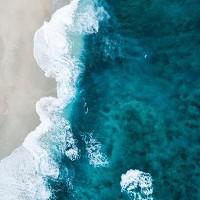01 May 2019
Fiji
Regional Workshop on Blue Economy, Disaster Risk Financing, and Ocean Infrastructure
Ocean health is increasingly recognized as vital to a sustainable and equitable economy.This is particularly true for island economies that heavily depend on ocean resources for major livelihood activities such as fishery and tourism. At the same time, island economies are threatened by ongoing changes such as sea-level rise or ocean acidification, and are among the global hotspots for rapid onset disasters like cyclones, floods, and droughts, that put their populations’ livelihoods at risk.
Several factors including their remoteness, smallness, and export/import dependency, cause island economies to suffer a disproportionate burden from these disasters. Sound policy development and innovative financing options are needed to tackle ongoing challenges.
Dunz delivered his talk titled ‘Disaster policy with financial constraints: application to SIDS’ during the ADB side event "Regional Workshop on Blue Economy, Disaster Risk Financing, and Ocean Infrastructure", which was co-organised by the Asian Development Bank Institute (ADBI), Fiji National University (FNU), the Asia-Pacific Applied Economics Association (APAEA), and the Ocean Policy Research Institute (OPRI-SPF) on 1 May 2019. His talk built on ongoing IIASA research to develop a next-generation catastrophe risk model which aims to deliver context-specific pre- and post-disaster policy advice to manage the fiscal and macroeconomic implications of catastrophic disasters in resource-limited island economies.
The workshop brought together approximately 40 subject matter experts from academic and regional policy circles. Representatives from various ministries in pacific countries such as the Ministry of Finance of the Maldives, the Reserve Bank of Fiji, the Ministry of Rural and Maritime Development of Fiji, and the Ministry of Climate Change Meteorology, Geo-Hazards, Energy, Environment and Disaster Management of Vanuatu, engaged in active policy dialogue. Innovative technological, financial, and socioeconomic solutions, such as living breakwaters, crowd-funding, insurance schemes, and Blue Finance, as well as proper tools for Disaster Risk Management were discussed in light of creating a Blue Economy and pursuing the sustainable use and long-term benefits of marine resources for small island states.
2019 marked the first year in which the ADB hosted its annual conference in the Pacific, gathering 3,000 experts, practitioners, and policymakers in Fiji. During the annual meeting, the ADB released its Healthy Oceans Action Plan including a financing target to increase its investment and technical assistance in the field of ocean economy to US$5 billion within the next five years.
To support this strategy, the IIASA Risk and Resilience Program is currently collaborating with the Ocean Policy Research Institute (OPRI) in Japan to apply its newly developed BinD (Binary constrained Disaster) Model in three economies in Asia and the Pacific - Fiji, the Maldives and Palau.


